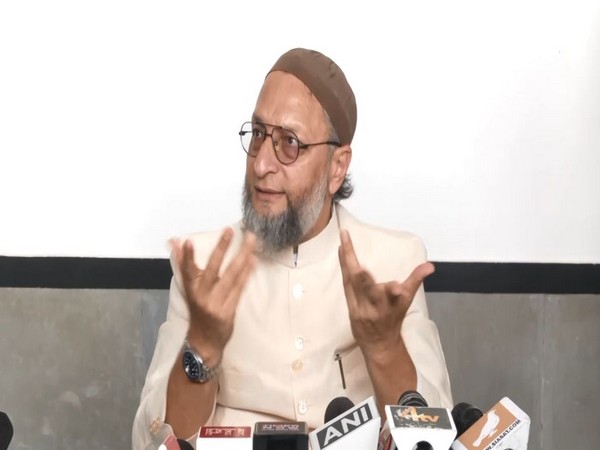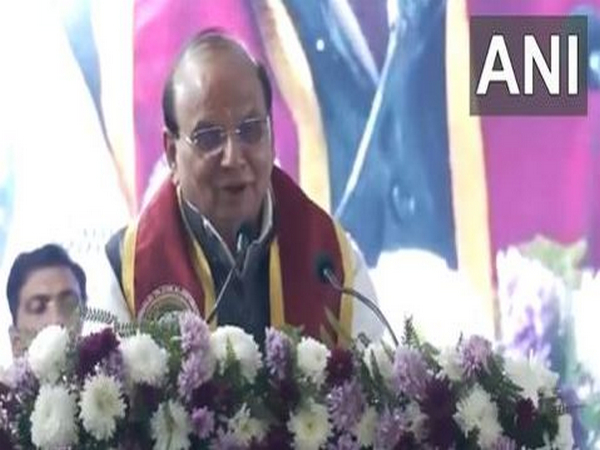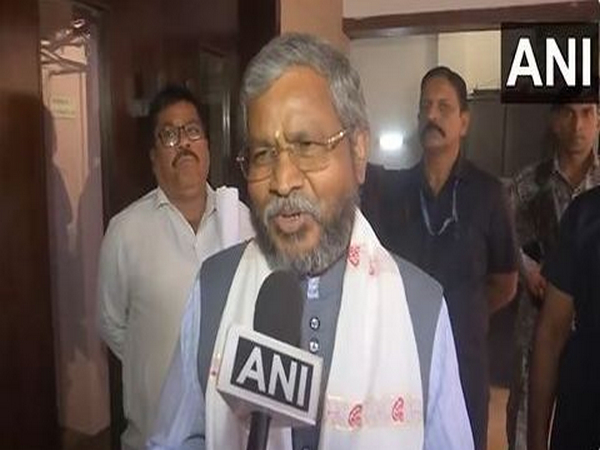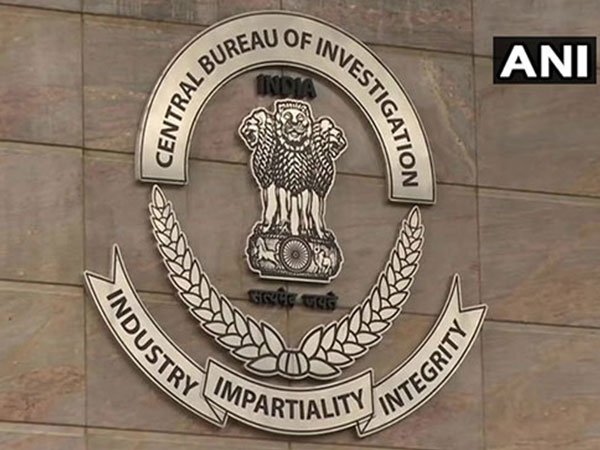Desk |
Updated: Nov 06, 2024 03:16 IST
Hyderabad (Telangana) [India], November 6 (Desk): AIMIM Chief Asaduddin Owaisi on Tuesday praised the Supreme Court’s decision to uphold the Uttar Pradesh Madarsa Act and condemned the UP Government’s attempts to discredit madrasas.
Owaisi also underlined the pending Rs 1,628.46 crore in salaries for teachers of essential subjects.
AIMIM Chief Asaduddin Owaisi stated on X, “The Supreme Court today declared the Madrasa Act of Uttar Pradesh as constitutional. The Yogi government has been constantly trying to defame madrasas and call them illegal. Perhaps because the UP government has not paid salaries to teachers teaching in 21,000 madrasas. These teachers did not teach religious education, but science, mathematics, etc. Salaries worth Rs 1,628.46 crore were pending till 2022-23. It is expected that the outstanding amount will be paid as soon as possible.”
उत्तर प्रदेश के मदरसा अधिनियम को आज सुप्रीम कोर्ट ने संवैधानिक क़रार दिया। योगी सरकार की लगातार कोशिश रही है कि मदरसों को बदनाम किया जाए और उन्हें ग़ैर-क़ानूनी कहा जाए। शायद इसलिए क्योंकि यूपी सरकार ने 21,000 मदरसों में पढ़ाने वाले शिक्षकों को उनकी तनख़्वाह नहीं दी है। ये शिक्षक…
— Asaduddin Owaisi (@asadowaisi) November 5, 2024
Bahujan Samaj Party (BSP) Chief Mayawati too welcomed the Supreme Court’s recent rulings, which uphold the constitutionality of the UP Madrasa Education Board Act-2004.
In her post, Mayawati praised the Supreme Court for declaring the UP Madrasa Education Board Act-2004 as “legal and constitutional.”
She said, “This decision is expected to resolve disputes and remove uncertainties surrounding madrasa education in Uttar Pradesh. Proper implementation of this decision is essential. Following the Supreme Court’s decision, there is now a prospect of stability in the recognition and smooth functioning of madrasas in UP.” She added, “The court stated that the provisions of the Madrasa Act align with constitutional values and protect the educational rights of religious minorities.”
Earlier in the day, the Supreme Court upheld the constitutional validity of the Uttar Pradesh Board of Madrasa Education Act 2004, setting aside the Allahabad High Court’s March 22 verdict that had struck down the Act. A bench led by Chief Justice of India DY Chandrachud and Justices JB Pardiwala and Manoj Misra found the Act unconstitutional to the extent that it regulates higher education in relation to ‘Fazil’ and ‘Kamil,’ conflicting with the UGC Act.
The bench clarified that the Madrasa Act regulates educational standards in Uttar Pradesh, stating that the right of minorities to administer educational institutions is not absolute and that the state can regulate educational standards. The Allahabad High Court had previously struck down the Act for violating the principles of secularism, a core aspect of the Constitution’s basic structure.
The Supreme Court noted that while a law can be struck down for violating fundamental rights or legislative competence, it cannot be invalidated solely for violating the basic structure. The Court’s ruling emphasized the need for the legislative scheme of the Act to standardize education levels in madrasas, stating that it does not interfere with their daily operations. The verdict aims to protect the rights of minorities in Uttar Pradesh and ensure that students can graduate and secure decent employment.
During the hearings, the apex court described India as a “melting pot of cultures, civilizations, and religions,” stressing the importance of preserving this diversity. The National Commission for Protection of Child Rights (NCPCR) argued that the education provided in madrasas was not comprehensive, which contradicted the provisions of the Right to Education Act, of 2009. The Uttar Pradesh government supported the legislation and accepted the ruling.
The Supreme Court’s decision followed appeals against the High Court’s judgment, which had found the UP Board of Madrasa Education Act 2004 unconstitutional and violative of secularism and fundamental rights. The appeals were filed by various associations, including the Managers Association Madaris Arabiya (UP) and the All India Teachers Association Madaris Arabiya (New Delhi). Madrasas are institutions where students pursue Islamic studies along with other education. The Allahabad High Court had previously urged the state to ensure that students in Uttar Pradesh’s madrasas could transition to other schools. (Desk)





